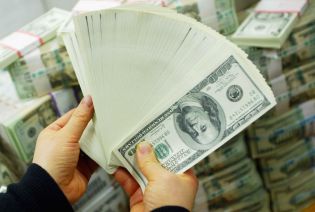
There are some fortunate people (in the Cayman Islands, Bermuda, Monaco, Vanuatu, Antigua and Barbuda, and a few other places) who don’t have to pay income taxes.
The United States used to be in that lucky club. The income tax did not become a permanent blight upon the nation until 1913 (there was a temporary income tax during the Civil War and an attempted income tax in 1894 – ruled unconstitutional in 1895).
Indeed, this odious tax is a relatively new invention for the entire world. If my memory is correct, the first income tax was a temporary measure imposed by the United Kingdom to finance the fight against Napoleon. And the U.K. also was the first country to impose a permanent income tax (ironically, to help offset lower taxes on international trade).
In every case, politicians followed the same script. Income taxes originally were supposed to have low rates and only apply to the rich.
But it was simply a matter of time before small taxes on the wealthy became punitive taxes on everybody.
Since today is tax filing day for Americans, let’s take the opportunity to highlight two specific unfortunate consequences of the income tax.
First, it enabled the modern welfare state. You can see from the chart that the explosion of redistribution spending only occurred after politicians obtained a new source of revenue (a problem that was exacerbated in Europe when politicians adopted value-added taxes and were able to further increase the burden of government spending).
Needless to say, this is a reason to oppose an energy tax, a wealth tax, or a financial transactions tax. Giving politicians a new source of revenue is like giving alcoholics the keys to a liquor store.
Second, the income tax enabled costly economic discrimination. Prior to income taxes, governments largely relied on trade taxes and excise taxes, and those levies did not create many opportunities for mischief.
An income tax, by contrast, allows the government to impose all sorts of special penalties – either with discriminatory tax rates or with extra layers of tax on saving and investment – on people who generate a lot of economic output.
And it’s worth mentioning that the income tax also allows politicians to create all sorts of special credits, exemptions, deduction, exclusion, and other preferences (about 75,000 pages of them) for politically well-connected interest groups.
These penalties and preferences are both morally troubling (rampant cronyism) and economically damaging (back-door methods of central planning).
Let’s wrap up today’s column with this helpful reminder that the income tax is basically a penalty on productive behavior.
P.S. Politicians can play games with other revenue sources (i.e., special VAT rates or differential tariff burdens), but the income tax stands apart because it is capable of generating large amounts of revenue while simultaneously giving politicians considerable ability to pick winners and losers.
Daniel J. Mitchell is a top expert on tax reform and supply-side tax policy and is Chairman of the Center for Freedom and Prosperity. Mitchell is a strong advocate of a flat tax and international tax competition.
Source material can be found at this site.









